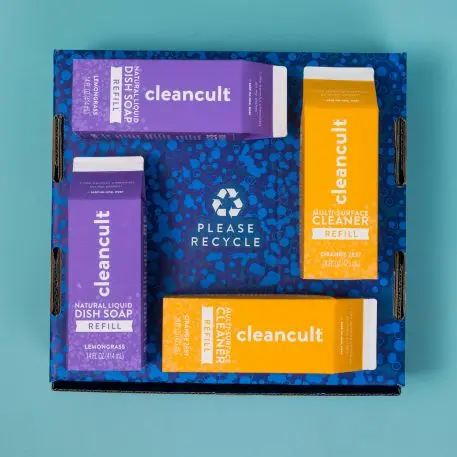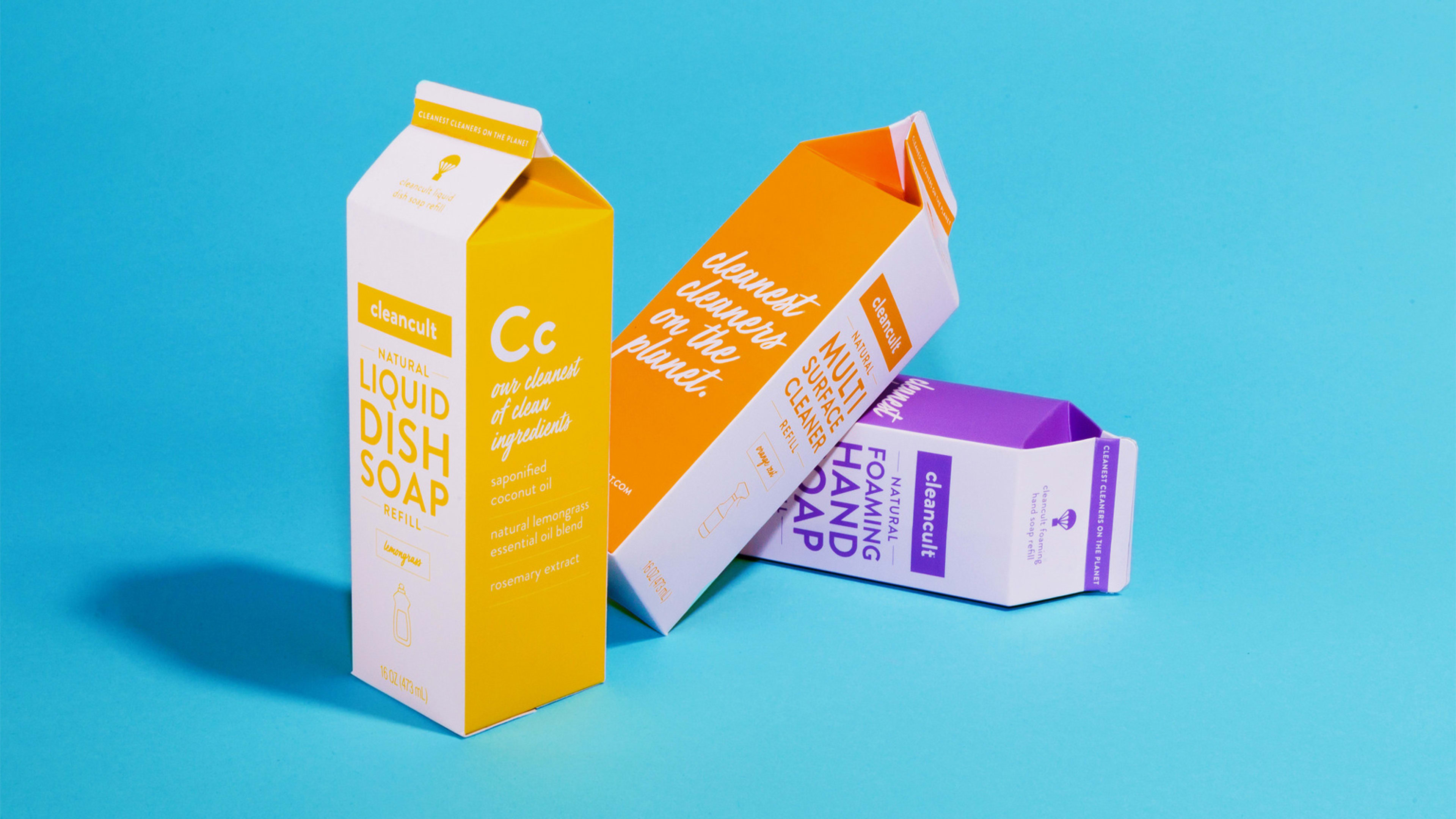You’re a responsible human who realizes that plastic is destroying the planet. So you carry a handy metal straw to restaurants and cute canvas totes to the grocery store to avoid using disposable plastic straws or bags. But then you step inside your house and realize that so many everyday objects in your house come in disposable plastic containers. How do you even begin to tackle it?
There’s a growing number of startups that are rethinking product packaging to reduce the amount of plastic we’re using. Brands like Lunchskins and Stasher have created reusable alternatives to Ziploc bags, and Abeego creates beeswax wrappers so you don’t need to use Saran wrap. In the personal care space, Myro has created refillable deodorants, and Seed has created shampoos and body lotions in biodegradable paper containers.

All of these efforts are helping chip away at the massive quantity of plastic waste we are putting out in the world. Half of all plastic waste we produce comes from plastic packaging. In 2015, for instance, that equated to 141 million metric tons. Since plastic does not biodegrade, it ends up sitting in landfills, or washing into the ocean, and will stay there forever, adding to all the existing plastic we have already created. For those of us who are looking for ways to cut down on our own, personal plastic consumption, the good news is that the anti-plastic revolution appears to be entering the home-cleaning-product industry.
This week, home cleaning product startup called cleancult started sells dish soap, hand soap, and all-purpose cleaner refills in milk cartons, which are sold on its website and at the Container Store. If you order the items on cleancult’s website, you can buy a first round of products that arrive in plastic containers. Then, you can sign up for a subscription and receive refills in these milk cartons. cleancult also sells laundry detergent and dishwasher tablets that also come in paper containers. If you already have reusable containers at home–like a glass dish soap dispenser, for instance–you can go straight for the refills. All the paper packaging the brand sells is recyclable.
Other brands have been working to reduce the amount of plastic in cleaning products, too: Seventh Generation, Method, and Mrs Meyers, for instance, sell liquid pouches that allow you to refill your standard plastic bottles of laundry detergent and dish soap. But in each of these cases, the pouches themselves are made from plastic. To be sure, they are making it easier for you to cut down on the amount of plastic you use, but not eliminate it. With cleancult, the system allows you not to have to use single-use plastic at all if you avoid buying the starter bottle.
https://www.youtube.com/watch?v=kB-WK_ifoA4
New York-based cleancult is the brainchild of two 24-year-olds, Ryan Lupberger and Zachary Bedrosian, who came up with the idea of a landfill-free cleaning brand while they were students at Babson College. They officially launched in January 2019. Like other non-toxic cleaning brands on the market–including Seventh Generation and Method–cleancult is interested in creating effective cleaning products that don’t rely on synthetic chemicals.
The founders received a grant from the National Science Foundation to invest in research and development about natural alternatives to the toxic chemicals we use to clean our homes. On cleancult’s website, each product comes with a lot of details about the ingredients, which are generally things we are familiar with, like rosemary extract and coconut oil. The company also has a give-back model, in which it donates one cleaning product to a family in need in Puerto Rico for every product purchased. However, it is this new paper packaging that really sets it apart from other brands on the market.
Right now, much of the innovation we’re seeing to reduce the amount of plastic in everyday products is happening among small startups. But we’re not going to see significant reductions in our plastic consumption until the major companies begin taking sustainability more seriously. There’s some evidence that the big conglomerates are beginning to realize that consumers don’t want to contribute to the massive quantity of plastic that is endangering our oceans and filling up our landfills. My colleague Adele Peters recently covered an exciting new development, where large corporations like Unilever and Procter & Gamble are working with a company called Loop to sell products in reusable containers, which the customer can send back to be refilled.
Even with the best of intentions, it will take larger companies a long time to change their large, complex supply chains, to make them more sustainable. As I described earlier this week, Evian announced it is going to make all disposable bottles out of recycled plastic, but it will take them six years to get to this goal. Small, new companies like cleancult have an advantage, because they can design eco-friendly products and supply chains from the start. And for those of us who feel bad every time we use another disposable plastic bottle, these new brands give us alternatives to the ones we’ve purchased for years at the grocery store.
Recognize your brand’s excellence by applying to this year’s Brands That Matter Awards before the early-rate deadline, May 3.
